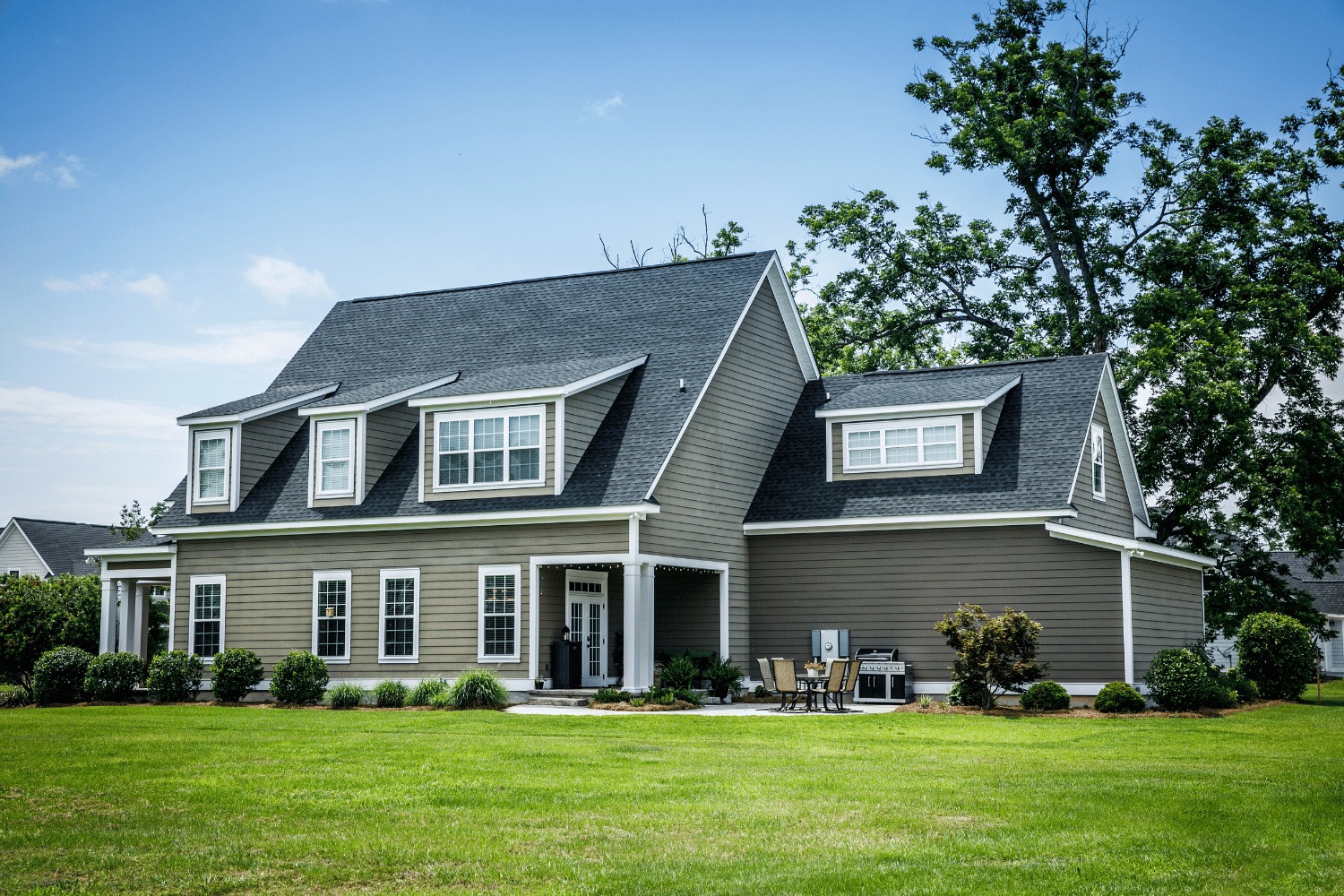Finding the Best Siding Installation Companies in Your Area: A Comprehensive Guide

When it’s time to give your home a facelift or protect it from the elements, new siding can make a world of difference. It’s not just about looks—siding shields your home from rain, wind, and extreme temperatures while boosting curb appeal and even saving you money on energy bills. But let’s be honest: finding the right siding installation company can feel overwhelming. If you’re searching for “siding companies near me” or “siding installation companies in my area,” this guide is here to help you navigate the process with ease. We’ll cover everything from picking a trustworthy contractor to choosing the perfect siding material for your home, all in a way that feels approachable and stress-free. Let’s dive in!
Related: How to Make Your House Beautiful Without Overspending?
Why Siding Is a Game-Changer for Your Home
Siding does more than make your house look good—it’s like a protective jacket that keeps out moisture, pests, and harsh weather. Done right, it can lower your energy costs by insulating your home and even increase your property’s value. Industry data suggests that replacing siding can cost around $11,000 on average, but the payoff is huge, thanks to better efficiency and a fresh, modern look.
Whether you’re replacing worn-out siding or starting fresh on a new build, the key to success is hiring a reliable siding company. A bad installation can lead to headaches like leaks, mold, or siding that falls apart too soon. So, how do you find the best siding contractors in your area? Let’s break it down.
What to Look for in a Siding Contractor
Not all siding companies are the same, and picking the right one takes a little homework. Here are the must-know factors to keep in mind when searching for “siding installation companies near me”:
1. Experience That Counts
You want a company that knows siding inside and out. Look for contractors who specialize in the material you’re eyeing, whether it’s vinyl, fiber cement, wood, or metal. For example, installing fiber cement siding, like James Hardie, isn’t a job for just anyone—it requires specific skills to handle the material safely and correctly. Companies with certifications from manufacturers, like the Vinyl Siding Institute or James Hardie ALLIANCE, are a good sign they’ve got the chops.
Check out their past work, too. Most reputable companies have photos of projects on their website or social media. For instance, Craftsman’s Choice in Minneapolis has a solid reputation for nailing James Hardie installations across the Twin Cities, with thousands of happy customers.
2. Licenses, Insurance, and Trustworthiness
Always make sure the company is licensed, bonded, and insured. A contractor’s license shows they’re legit and follow local rules, while insurance (both general liability and workers’ comp) protects you if something goes wrong, like an accident on your property. Ask to see proof of both—it’s a simple way to avoid shady operators.
Certifications from places like the Better Business Bureau (BBB) or manufacturer programs are another green flag. BBB-accredited businesses, for example, are vetted for reliability and customer satisfaction, so you know you’re dealing with someone trustworthy.
3. What Are Other Customers Saying?
Reviews are your best friend when picking a siding company. Websites like Yelp, Angi, or HomeAdvisor let you see what real people think about a contractor’s work. Look for feedback on things like punctuality, communication, and whether the job site was left clean. For example, Cali Siding and Windows in San Francisco gets rave reviews for affordable, high-quality work and tackling tricky projects with ease.
Steer clear of companies with no reviews or a string of unresolved complaints. The BBB website is also great for checking ratings and spotting any red flags.
4. Warranties and Clear Contracts
A good siding company stands behind its work with warranties on both materials and installation. Manufacturer warranties, like the 50-year coverage on LP SmartSide, protect against material defects, while a workmanship warranty ensures the installation holds up. Ask how long the warranty lasts and what it covers.
Make sure everything is spelled out in a written contract—project details, timeline, materials, and payment terms. Speaking of payments, never pay the full amount upfront. A typical down payment is around 50%, with the rest paid as the project moves along. This keeps everyone accountable and protects you from scams.
5. Shop Around for Quotes
Don’t settle for the first estimate you get. Reach out to at least three siding companies for in-person quotes. Each should break down costs for labor, materials, and anything extra, like removing old siding. For example, vinyl siding labor might run $2 to $5 per square foot, while fiber cement could be $4 to $10.
Super-low bids might sound tempting, but they can signal cheap materials or inexperienced workers. A detailed, transparent quote from a company like Infinity Exteriors in Wisconsin gives you confidence you’re getting quality without overpaying.
Related: Top 7 Must-Have Summer Household Items to Buy Right Now
Picking the Right Siding Material
Choosing the material is just as important as finding the right contractor. Here’s a quick rundown of popular options and why they might work for you:
-
Vinyl Siding: Budget-friendly, low-maintenance, and tough, vinyl lasts 20 to 60 years and comes in tons of colors and styles. It’s perfect if you want durability without breaking the bank.
-
Fiber Cement Siding: Think James Hardie—durable, stylish, and great at mimicking wood without the upkeep. It lasts 30 to 50 years but needs skilled installers.
-
Wood Siding: Classic and beautiful, but it requires regular care to avoid rot. It lasts 20 to 50 years, depending on your climate.
-
Metal Siding: Steel or aluminum is super durable (30 to 70 years) and great for modern homes, though it can dent and may need special coatings in salty coastal areas.
-
Brick or Stone Siding: These are nearly indestructible (100+ years!) and low-maintenance, but they’re pricier and need expert installation.
Your climate and style preferences play a big role here. In humid areas like Denver, wood might not hold up as well, so vinyl or fiber cement could be smarter picks.
How to Track Down Local Siding Companies
Ready to start your search for “siding companies in my area”? Here are some easy ways to find the best ones:
-
Online Platforms: Angi, HomeAdvisor, Yelp, and Houzz list local contractors with reviews and ratings. You can compare pros and request quotes in minutes.
-
BBB Directory: The Better Business Bureau is a goldmine for finding trustworthy, accredited contractors near you.
-
Manufacturer Websites: Brands like James Hardie or LP SmartSide have tools to find certified installers in your area.
-
Home Improvement Stores: Places like Lowe’s can connect you with licensed, insured siding pros.
-
Ask Around: Got a neighbor with gorgeous siding? Ask who they used. Personal recommendations are often the best leads.
Questions to Ask Before You Hire
Before signing on the dotted line, have a chat with your potential contractor. Here are some questions to get the conversation going:
-
How long have you been doing siding, and do you specialize in the material I want?
-
Can you share photos or references from similar jobs?
-
Are you licensed, insured, and certified by any manufacturers?
-
What kind of warranties do you offer, and how long do they last?
-
How long will the project take, and what’s the payment plan?
-
Do you use subcontractors, and are they insured?
These questions will give you a clear picture of the contractor’s experience and reliability. Companies like NexGen in Philadelphia, for example, are known for being responsive and easy to work with, even helping customers navigate insurance claims.
Wrapping It Up
Upgrading your home’s siding is a big decision, but with the right contractor, it’s an investment that pays off in spades—better protection, lower energy bills, and a home that turns heads. Take your time to research local siding companies, compare quotes, and choose a material that fits your style and budget. Use resources like Angi, Yelp, or the BBB to find top-rated pros in your area, and don’t be shy about asking questions to make sure you’re getting the best. With a little effort, you’ll find a siding company that delivers quality work and peace of mind, leaving your home looking amazing for years to come.
ADVERTISEMENT





